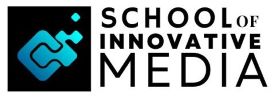INTRODUCTION
This comprehensive course is designed to equip aspiring journalists with the essential skills and techniques needed to excel in the world of writing. Whether you’re interested in reporting breaking news or crafting engaging feature stories, this course will guide you through the entire journalistic writing process. From researching and interviewing to structuring and editing, you’ll learn the ins and outs of writing impactful and compelling stories.
COURSE OBJECTIVE
At the end of the program, participants are expected to achieve the following:
- Understand the different journalistic writing arts.
- Recognize the types of press articles.
- Get to know the journalistic article as one of the arts of journalistic writing in detail.
- Practicing journalistic writing techniques and methods of dissemination.
Course Description:
This comprehensive course is designed to equip aspiring journalists with the essential skills and techniques needed to excel in the world of writing. Whether you’re interested in reporting breaking news or crafting engaging feature stories, this course will guide you through the entire journalistic writing process. From researching and interviewing to structuring and editing, you’ll learn the ins and outs of writing impactful and compelling stories.
Course Benefits:
- Develop strong writing skills essential for journalism and communication careers.
- Gain insights into the principles of ethical and responsible journalism.
- Master the art of conducting effective interviews and research.
- Learn to write compelling news stories and engaging feature articles.
- Build a professional portfolio showcasing a variety of journalistic writing styles.
Who Should Enroll:
- Aspiring journalists, bloggers, and content creators.
- Communication and media students seeking to enhance their writing skills.
- Professionals looking to transition into journalism or media-related roles.
Course Format:
- Online & In Person
- Writing assignments and exercises for practical application.
- Interactive discussions and peer feedback on writing assignments.
- Live webinars with guest journalists and editors for industry insights.
Prerequisites:
- Proficiency in written English. No prior journalism experience required.
COURSE OUTLINE
Introduction to Journalism Writing
- Understanding the role of writing in journalism
- Overview of different types of journalistic writing: news, features, opinion, etc.
- Ethical considerations and responsibilities of a journalist
- Importance of accuracy, fairness, and objectivity in reporting
Introduction to Journalism Writing
- Understanding the role of writing in journalism
- Overview of different types of journalistic writing: news, features, opinion, etc.
- Ethical considerations and responsibilities of a journalist
- Importance of accuracy, fairness, and objectivity in reporting
Research and Story Ideas
- Techniques for generating story ideas and identifying newsworthy topics
- Conducting effective research using reliable sources
- Utilizing digital tools and databases for gathering information
- Developing critical thinking skills to evaluate the credibility of sources
Interviewing Skills
- The art of conducting successful interviews: preparation, questioning, active listening
- Techniques for building rapport with sources and eliciting valuable information
- Ethical considerations in interviewing and obtaining consent
- Analyzing interview data to extract key insights for storytelling
Writing News Stories
- Structure and elements of a news story: inverted pyramid, headline, lead, body, conclusion
- Crafting concise and engaging leads to hook readers
- Applying the 5 W’s and H (who, what, when, where, why, how) in news reporting
- Editing and revising news stories for clarity and accuracy
Feature Storytelling
- Characteristics of feature stories and their role in human interest reporting
- Using storytelling techniques to engage readers emotionally
- Different types of feature stories: profiles, human interest, trend pieces, etc.
- Incorporating descriptive language, anecdotes, and narratives in feature writing
Structuring and Organizing Content
- Organizing information logically for maximum impact
- Effective use of subheadings, bullet points, and visual elements
- Creating a flow that guides readers through the story
- Balancing information, quotes, and context for clarity
Style and Tone in Journalism Writing
- Understanding the importance of a consistent writing style
- Adapting tone and style to match the intended audience
- Using clear and concise language while avoiding jargon
- Guidelines for using quotes, attributions, and direct speech
Editing and Proofreading
- The role of editing in improving clarity, coherence, and readability
- Techniques for self-editing and revising your own work
- Importance of fact-checking and verifying information
- Proofreading strategies to catch grammatical and typographical errors
Writing Opinion Pieces and Editorials
- Introduction to writing opinion pieces, editorials, and commentaries
- Techniques for presenting a persuasive argument and supporting opinions
- Balancing facts and analysis in opinion writing
- Addressing counterarguments and engaging with opposing viewpoints
Building a Portfolio and Navigating the Industry
- Compiling a portfolio showcasing your journalistic writing skills
- Tips for networking, pitching stories, and building relationships with editors
- Exploring different platforms for publishing and distributing your work
- Navigating the evolving landscape of digital journalism and freelancing opportunities
Course Completion:
- Participants who successfully complete the course will receive a Certificate in Journalism Writing
Writing As A Journalist: From News to Features
3 Days
2nd-4th, July 2025
Online & In Person
₦75,000


